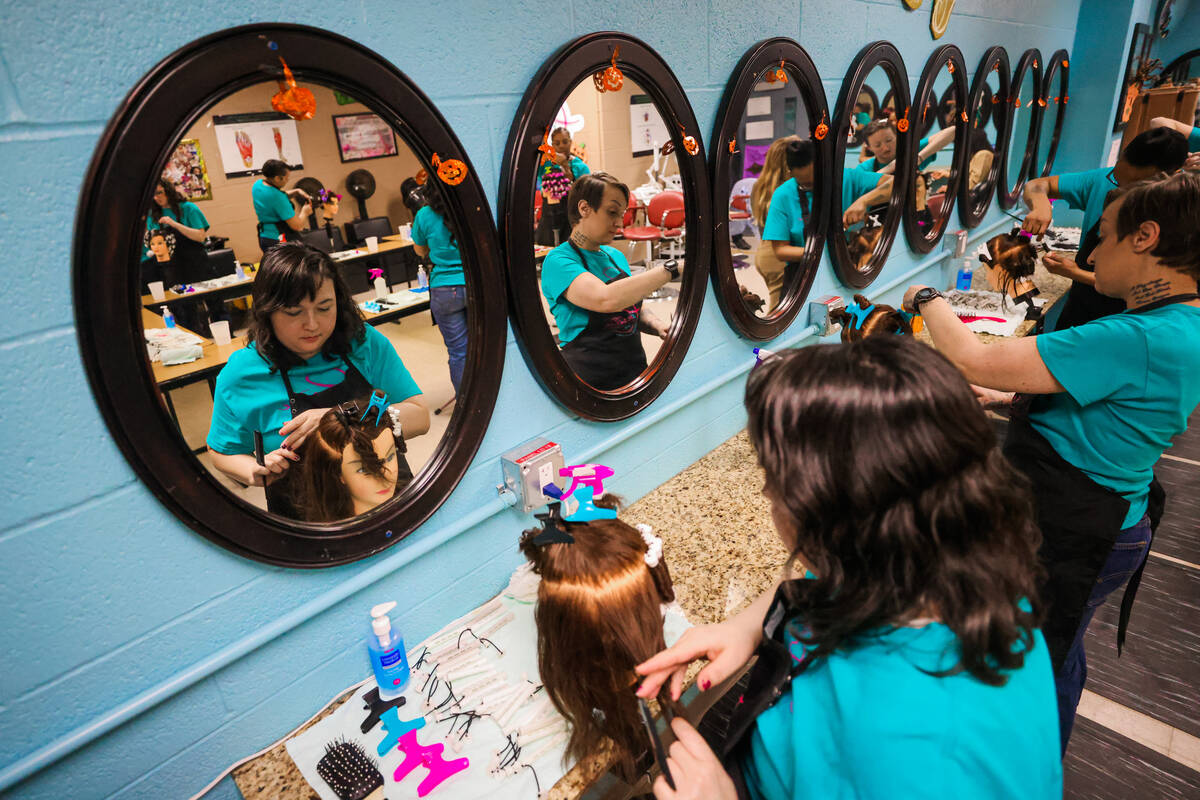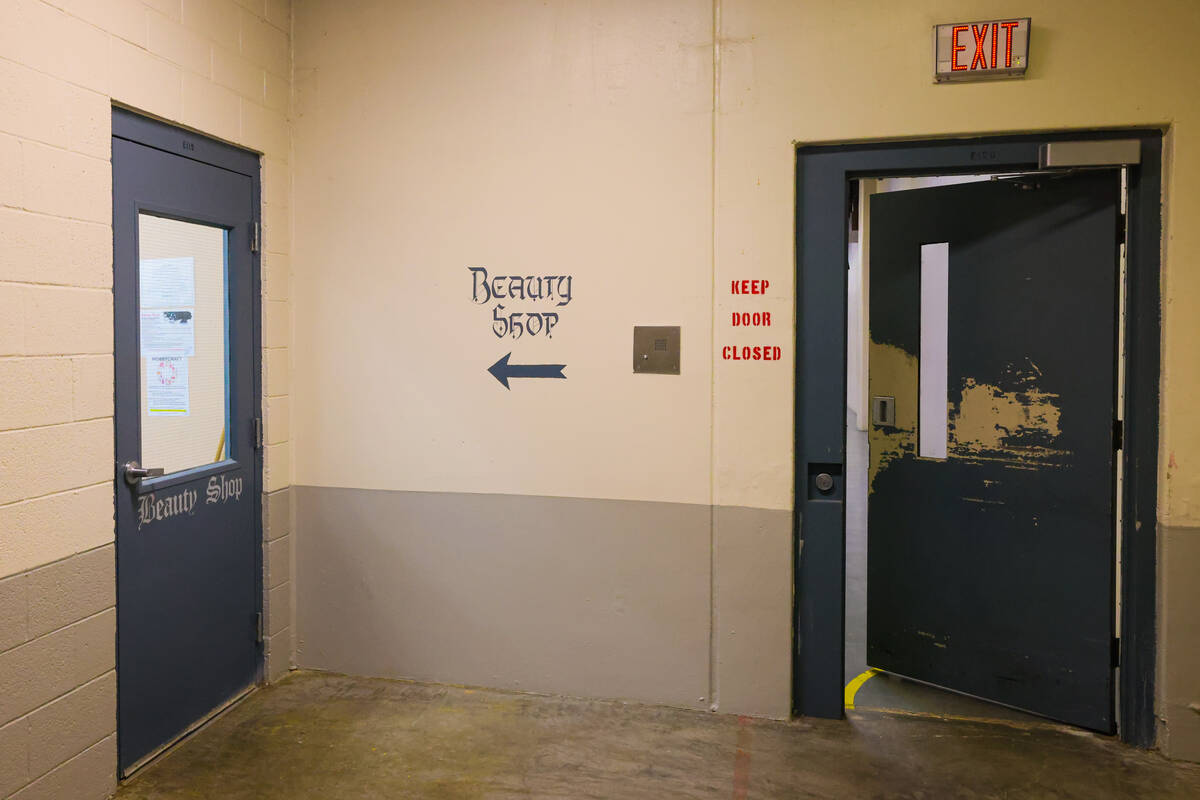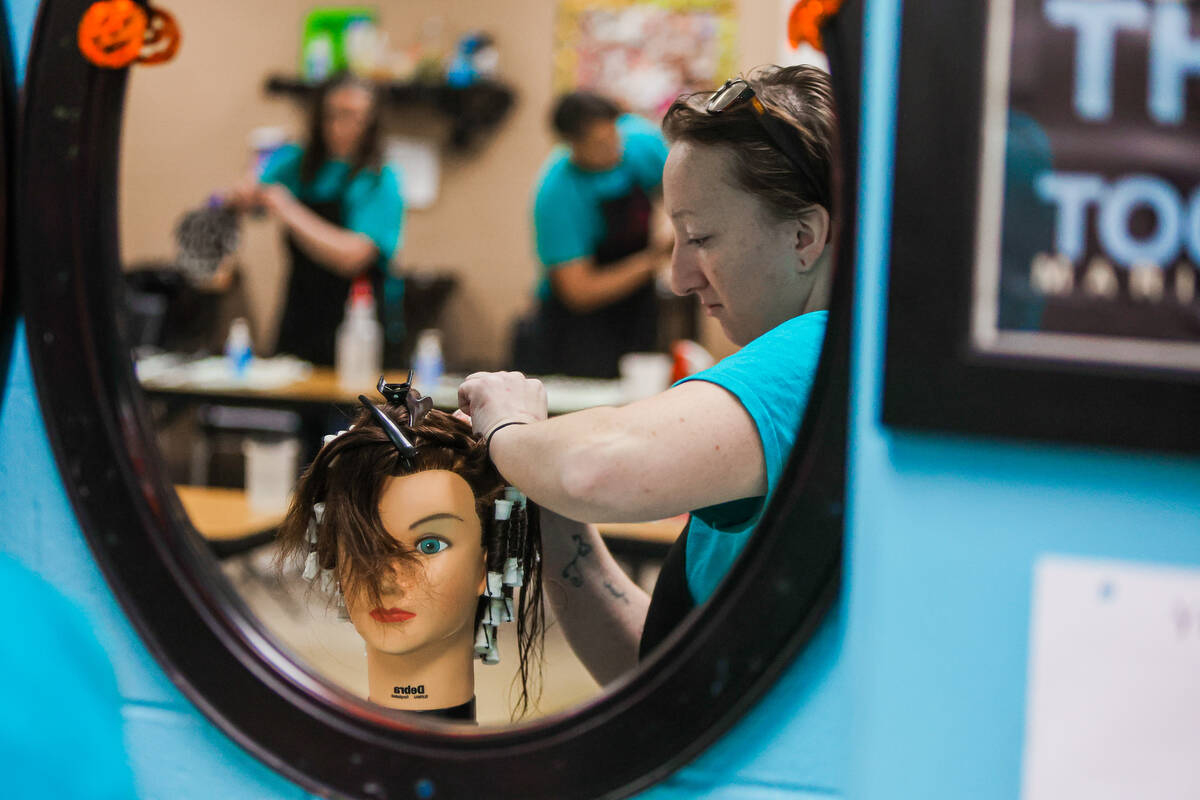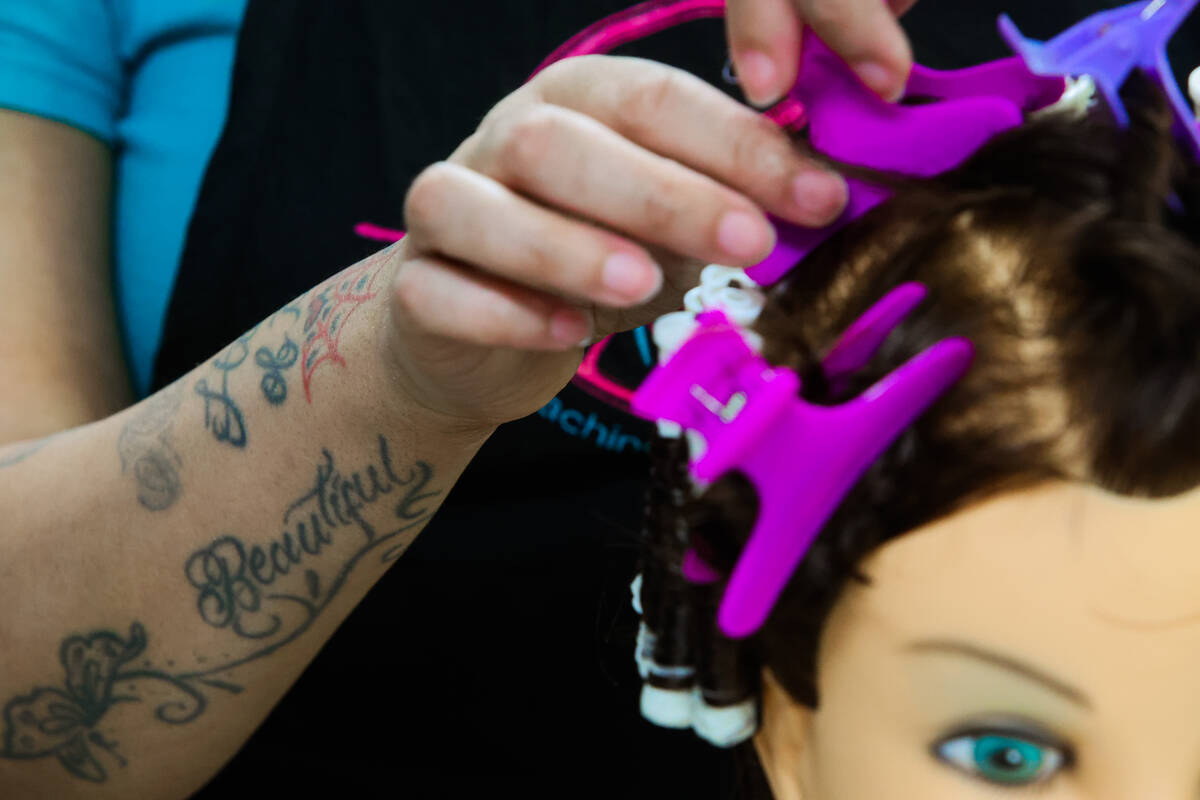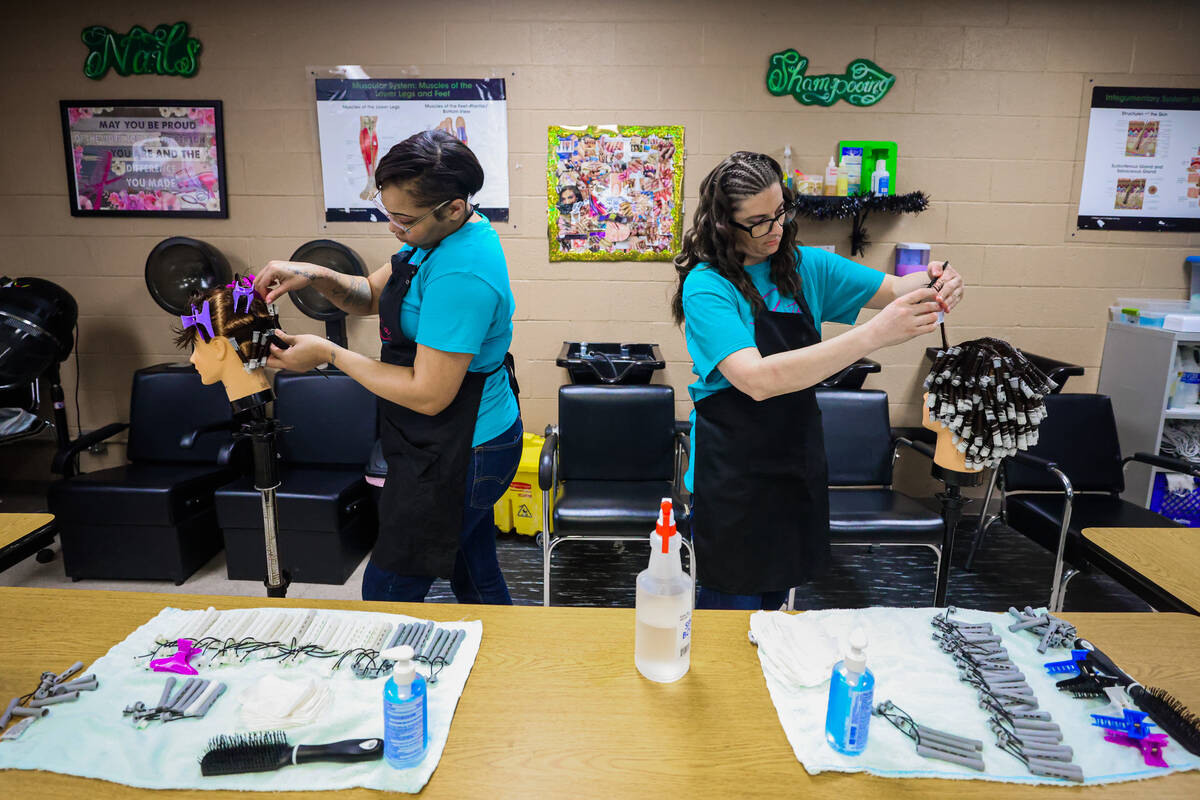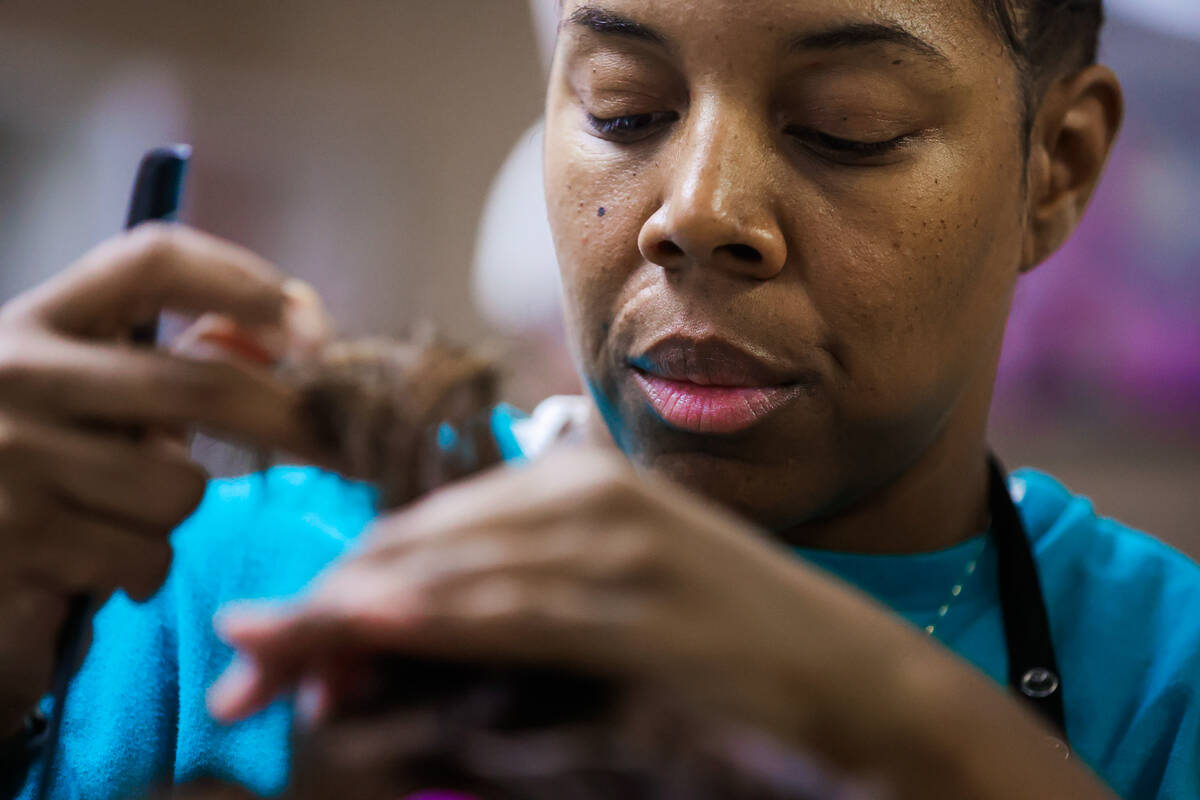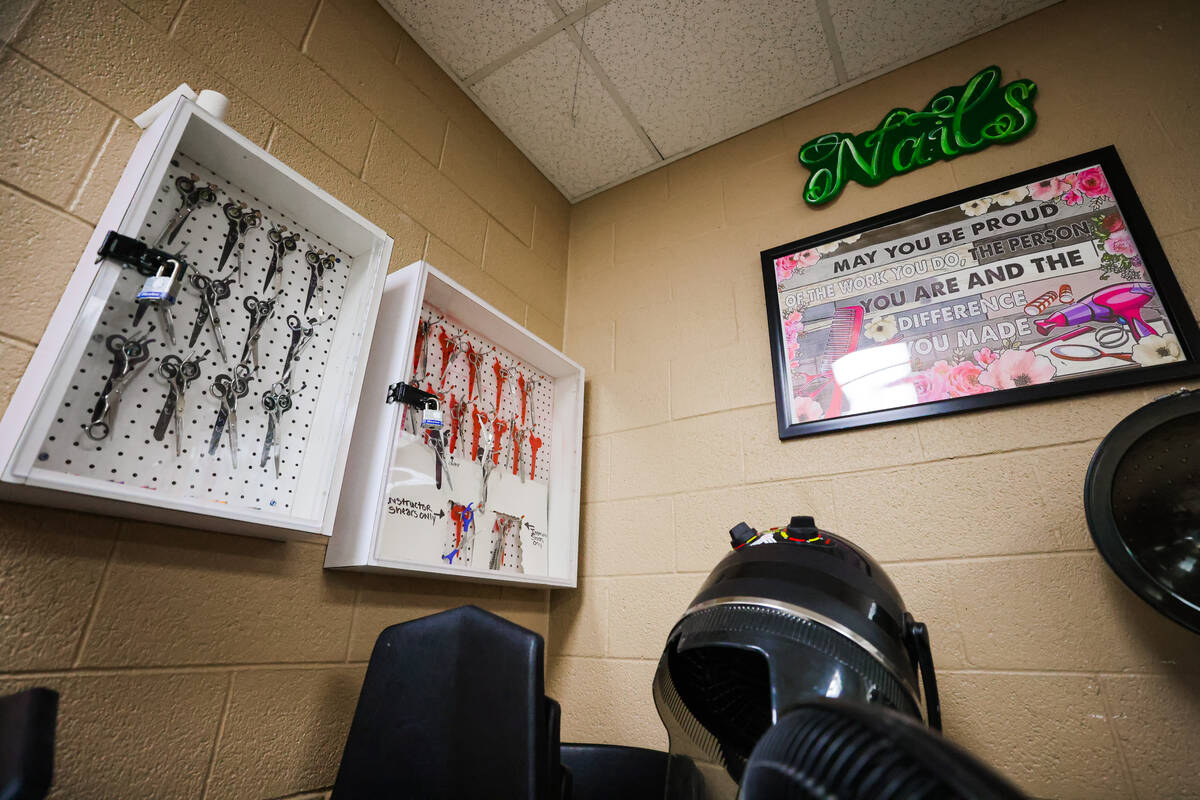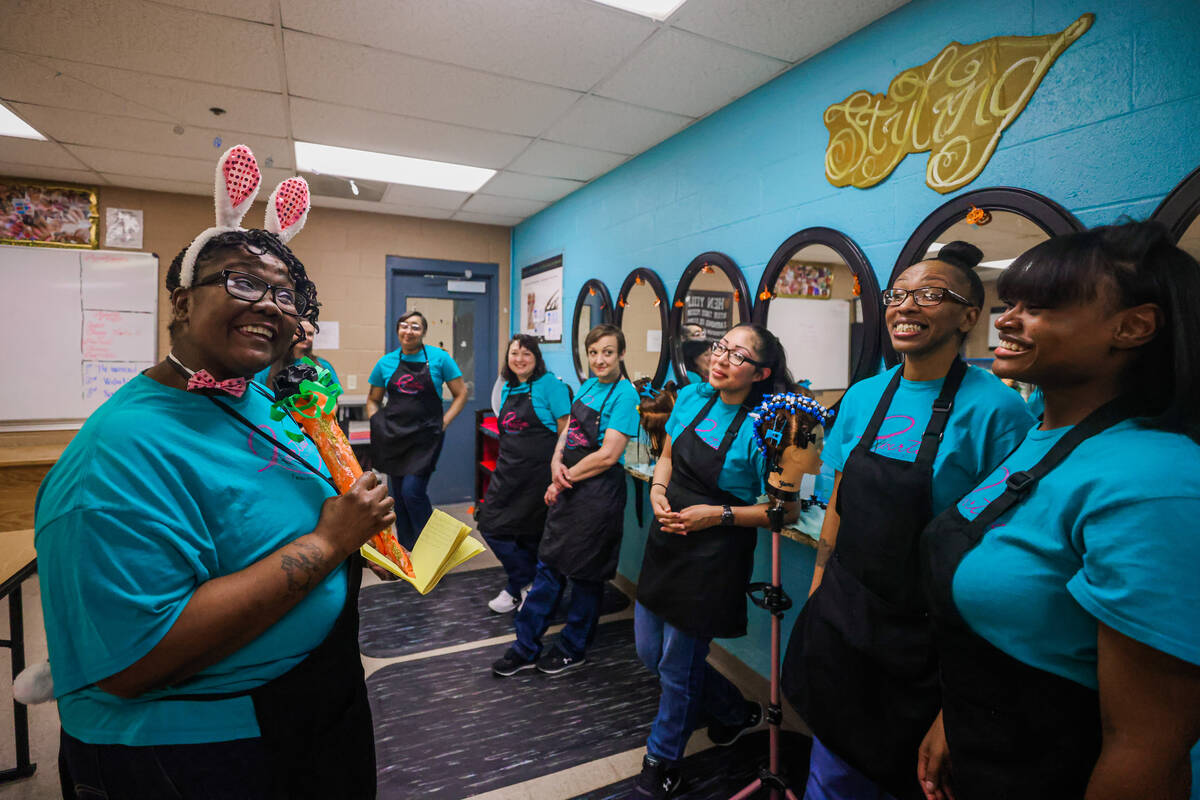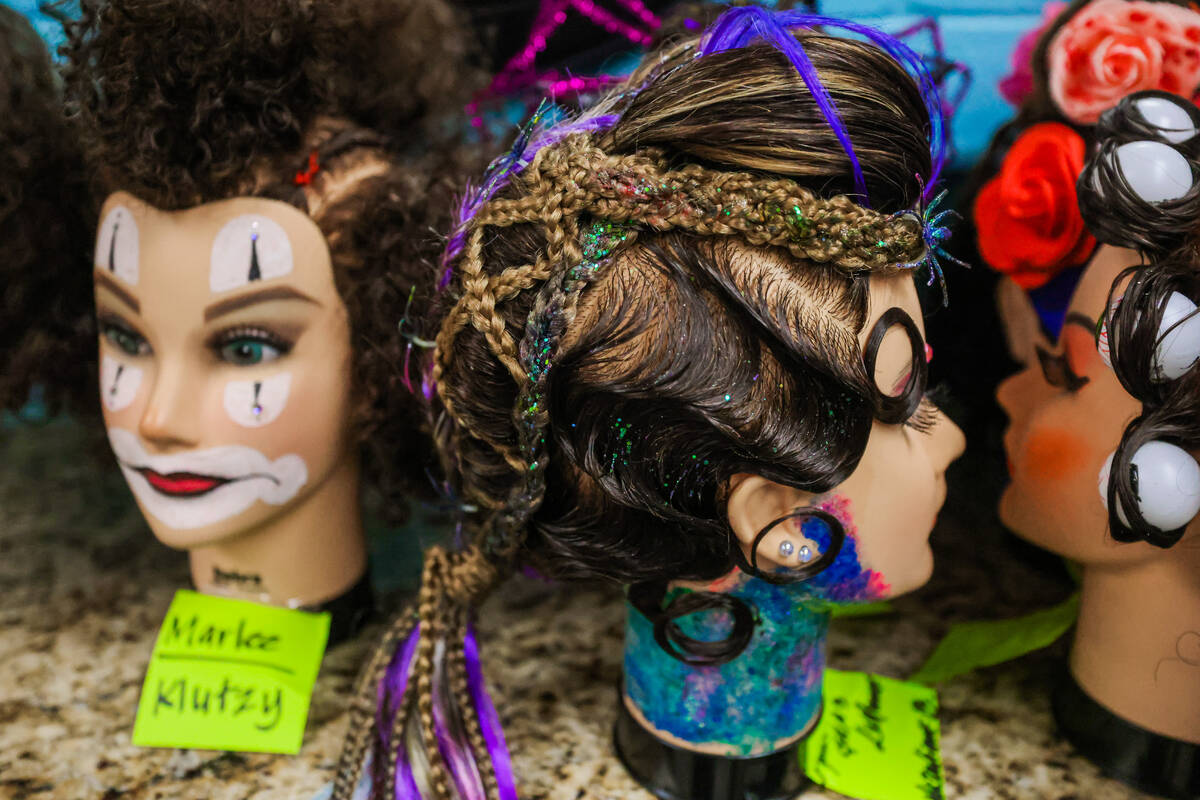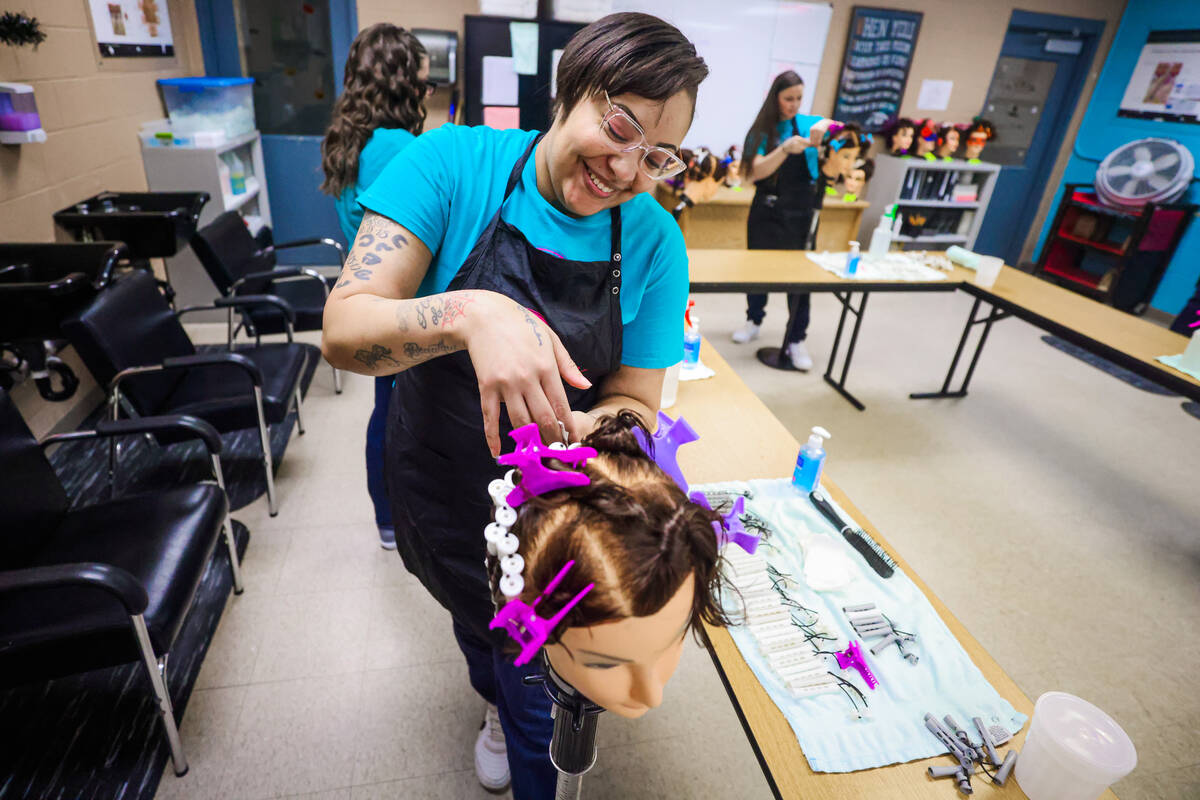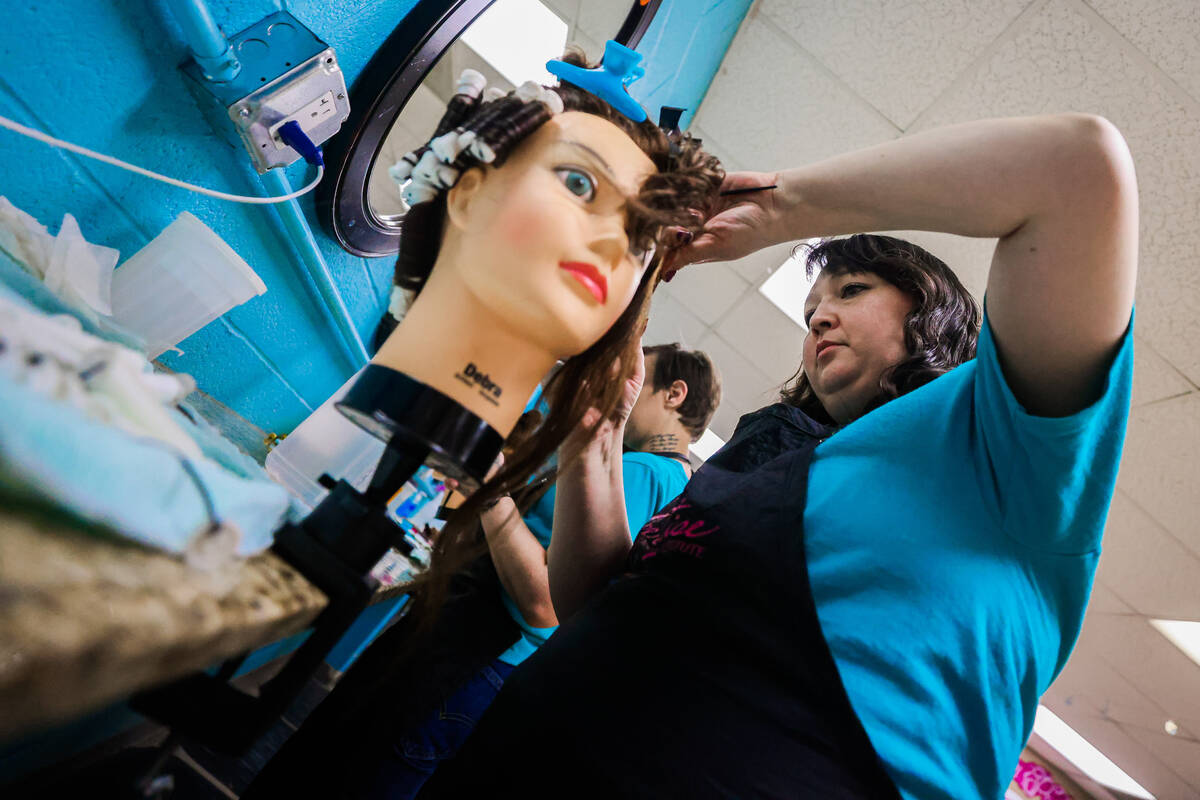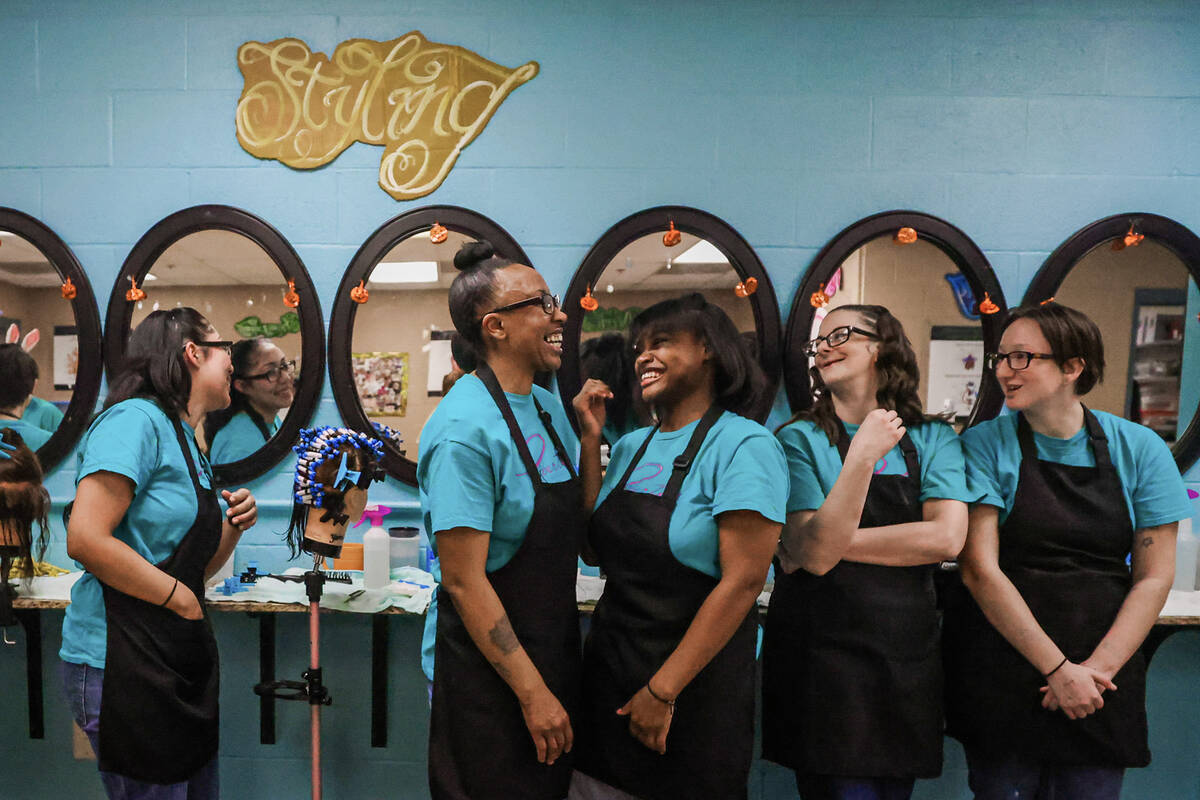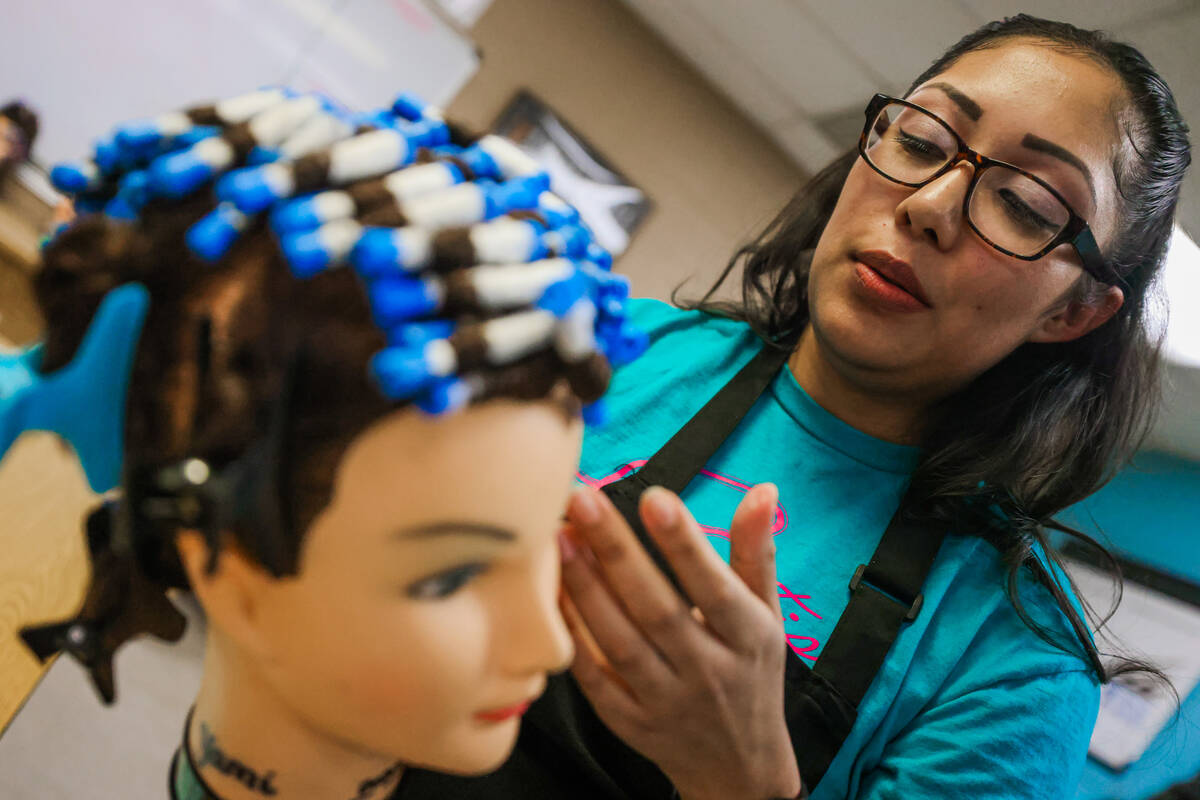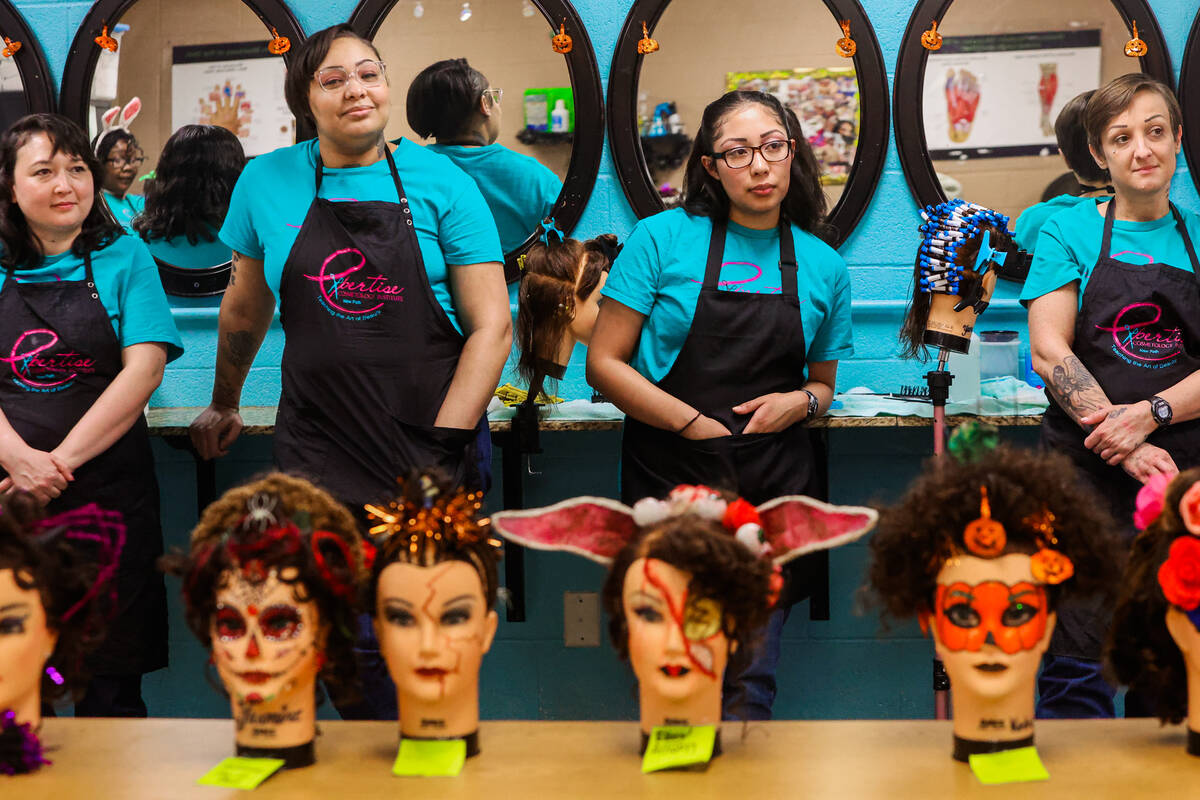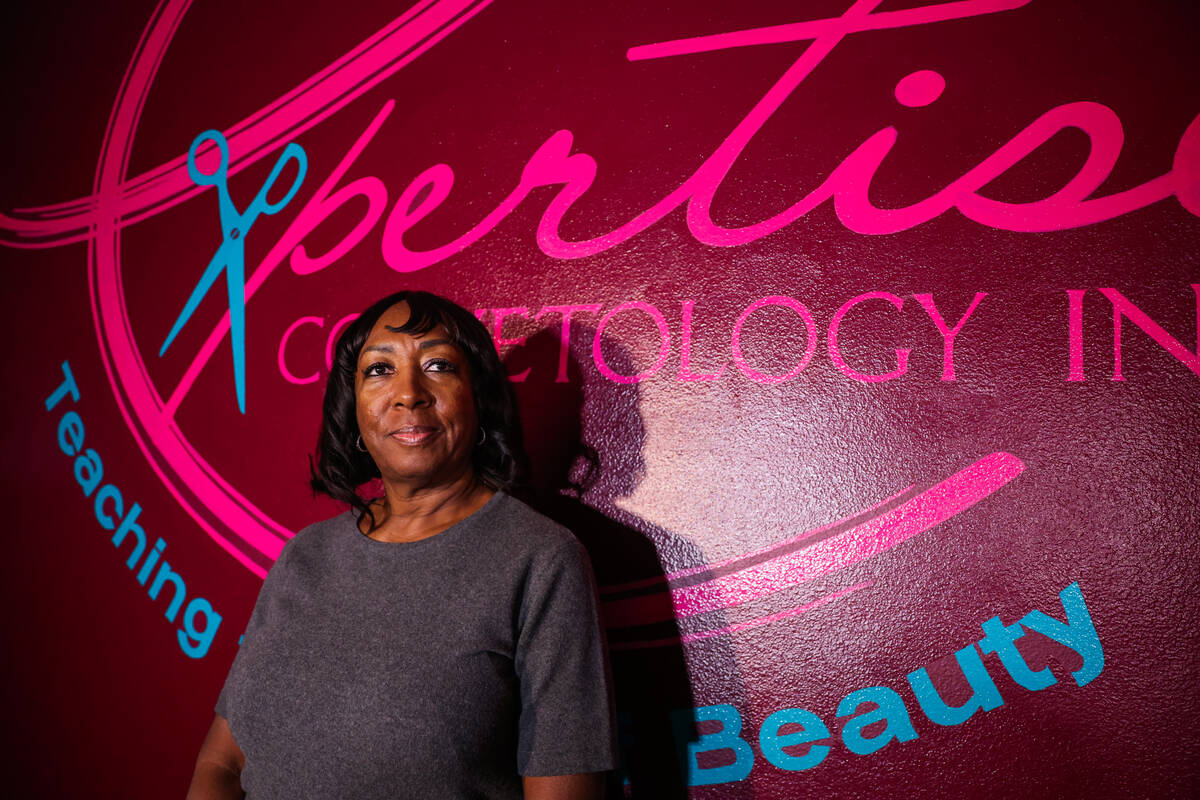‘It’s like air’: Inmates at Nevada prison say cosmetology program can change lives
Studying cosmetology isn’t something Brenda Garcia said she ever saw herself doing. In fact, until she started taking classes, she said she couldn’t do her own hair.
But today, Garcia, 26, is about halfway through a yearlong program that will end in a license, allowing her to help lift up other women the way the program has lifted her.
Garcia and her classmates are learning the same skills as any other cosmetology student in Nevada, except they are learning those skills while behind bars.
For seven hours a day, five days a week, a group of around a dozen inmates at Florence McClure Women’s Correctional Center meets in a mirrored room to learn the skills needed to perform salon services, manage their finances and interact with clients. The New Path program is supported by the Expertise Cosmetology Institute with the help of government funding.
For the inmates who are able to participate in the program, its significance goes beyond learning skills.
“It’s like air,” said Majuniqe Brown, an incarcerated student in the program. She said she wants to help anyone sitting in her salon chair to look the way they feel inside. “That chair transforms everything.”
‘My time to get it right’
Music floated through the room as inmates waited to display their creations in a recent Halloween hairstyle show.
Students in the class worked on mannequin heads, doing their own hair and makeup in preparation for the show. Creations were paraded with pride, ranging from a Day of the Dead look on a mannequin named Lolita and a Mardi Gras mermaid.
“I myself have a lot of confidence issues, and one of the things that has really helped me to feel more me is working with makeup,” said student Erica Eisenloffel, 23. “If I can help at least one person wake up one morning and look at themselves and feel more comfortable in their own skin, it’s huge.”
Eisenloffel said she has been interested in beauty since a young age, but she said going to cosmetology school is something she never thought she’d be able to do.
According to Gwen Braimoh, executive director of Expertise Cosmetology Institute, getting a cosmetology license can cost anywhere between $16,000 and $24,000.
It’s a financial burden that Lishae Macfield, 31, saw firsthand as her sister put herself through cosmetology school.
“I watched her struggle,” Macfield said, remembering times when her sister couldn’t afford to put gas in her car or pay her rent.
Macfield said she grew up in salons — her mother was a cosmetologist — and developed a passion there that only now can she see turning into a career.
“Things happened in life, and cosmetology was something that I put on the back burner,” Macfield said. “When I got sentenced, I told my judge that I was going to take this time to be a better person.”
“This is my golden key,” she said of the New Path program. “This is my time to get it right.”
Butterflies
When the correctional center’s associate warden Gabriela Najera first starting working with Braimoh to develop the program back in 2016, she said she was “pretty skeptical about the safety and security concerns.”
But with time, it became clear that the program was working. According to Braimoh, out of the approximately 85 women who have received their cosmetology licenses through the program, only one or two have ever returned to Florence McClure.
“These women leave here like butterflies,” Braimoh said, estimating that around 70 percent of her graduates are successfully working in the industry.
The program, Braimoh said, is doing what it was intended to do: “change the lives of these individuals that made a mistake.”
Najera gestured to a glass cabinet where hair shears are kept locked up. In order to ensure that graduates can get their license, students must take a full curriculum. “Now, we do everything,” Najera said.
Starting over
For Blaze Boadu, 26, working in the cosmetology industry would be her first job. But attending class each day has been a lesson in discipline, Boadu said. “It helps me because I’ve noticed, when I do hair, what I’m capable of,” she said.
When she leaves Florence McClure, Boadu believes her cosmetology license will help her land on her feet. “I don’t have to crawl or find a way,” she said. “I just don’t want to go back to prison.”
Life after release can be a challenge, Braimoh said. “Once you leave the facility with the license, it’s just the beginning,” she said.
Braimoh works with corporate partners to land graduates jobs after they are released.
Sometimes, these partners will ask why they should hire a New Path graduate. Braimoh’s answer? They will be loyal. “You’ve invested in them, and now they want to work for you,” she said.
“I just wish society would be a little bit more open-minded,” she continued. “They’re going to be released in all of our neighborhoods, so I would rather have an offender in my neighborhood that has changed their life.”
Two graduates of the program working successfully in the field of cosmetology declined to be interviewed because they said they feared facing scrutiny for their past.
Marlee Mathews, a current student in the program, said that for her, the class is everything. “With my record, getting out looked kind of bleak before this,” she said.
“The institution, they don’t have to offer this. And expertise doesn’t have to come in and do this for us. I’m so grateful,” Mathews, 40, said. “This is giving me a future.”
Contact Estelle Atkinson at eatkinson@reviewjournal.com. Follow @estellelilym on X and @estelleatkinsonreports on Instagram.



